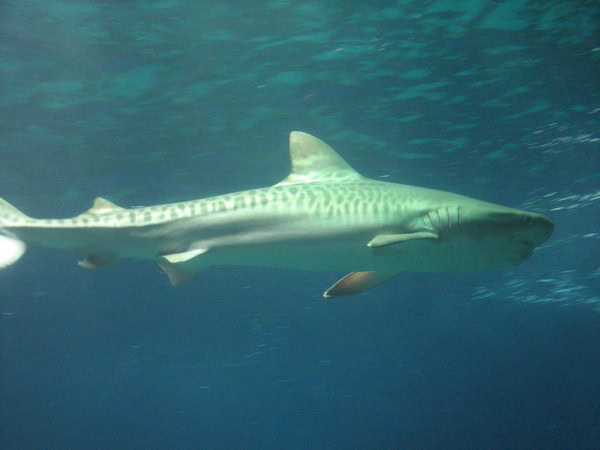Washington: Researchers found a surprising factor in the diets of baby tiger sharks. Other than seabirds like gulls or pelicans, they were found eating terrestrial birds like songbirds!
“Tiger sharks will see an easy meal and snatch it up, but I was surprised to learn that the sharks were eating songbirds. I assumed that they’d be seabirds. It was one of the coolest projects I’ve been associated with using DNA to tell a story,” said Kevin Feldheim, co-author of the study.
But since the birds were partially digested, it was hard for the scientists to tell exactly what kinds of birds they were. To figure it out, they sent the bird remains to the laboratory. The scientists took tiny pieces of the bird remains and used chemicals to break them down into their basic molecular components. From there, they were able to examine the DNA sequences present in the bird tissues and compared them to databases of bird DNA to see what species they were from.
“None of them were seagulls, pelicans, cormorants, or any kind of marine bird. They were all terrestrial birds, the kinds that might live in your backyard,” said the lead author, Marcus Drymon.
This isn’t the first time that tiger sharks have been known to eat birds. There’s a site off Hawaii where baby albatrosses learn to fly, and adult tiger sharks pick them off.
But this is the first time scientists have evidence that tiger sharks eat songbirds that primarily live on land. That’s because these sharks were in the Gulf of Mexico during migration season.
“The tiger sharks scavenge on songbirds that have trouble flying over the ocean. During migration, they’re already worn out, and then they get tired or fall into the ocean during a storm,” added Feldheim.
He noted that the terrestrial birds might make more attractive prey than seabirds because the seabirds can handle themselves better in and around the water than the songbirds can.
The study gives scientists a better understanding of tiger sharks, which could ultimately help us to protect them. “All sharks are in trouble. We don’t know the extent of how industrialised fishing has taken a toll, but the vast majority of top predator populations have declined in recent years,” said Feldheim.
[source_without_link]ANI[/source_without_link]

